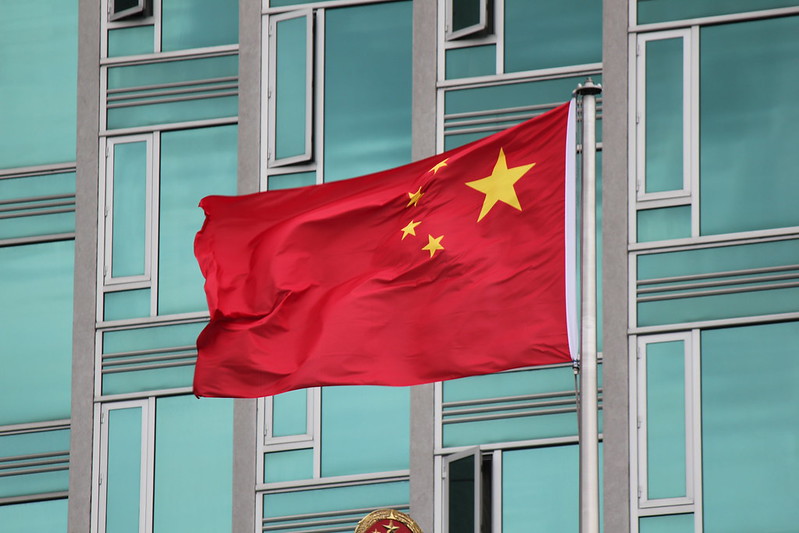US-based Human Rights Watch (HRW) has called on the international community to push back against “the most brutal and pervasive oppression China has seen in decades” in its 2020 annual report.
The release of the World Report 2020 came after the organization’s Executive Director, Kenneth Roth said he was denied entry to Hong Kong, where he planned to launch the scathing review of the Chinese government.
The scale of repression
HRW’s report, released 14 January, said that Beijing is carrying out an intense attack on the global system. Decades of progress that have allowed people around the world to speak freely, live without fear of arbitrary imprisonment and torture, and enjoy other human rights are at risk, Roth said.
The 652-page report, which covers nearly 100 countries, said the Chinese government has created a vast surveillance state in its efforts to achieve total social control. It is now increasingly using its economic and diplomatic clout to fend off global efforts abroad to hold it to account for its repression.
“Beijing has long suppressed domestic critics,” said Roth. “Now, the Chinese government is trying to extend that censorship to the rest of the world. To protect everyone’s future, governments need to act together to resist Beijing’s assault on the international human rights system.”
Roth noted many other threats to human rights around the world, including in Syria and Yemen, where government forces from Syria, Russia, and the Saudi-led coalition blatantly disregard the international rules designed to spare civilians, including the prohibitions against attacking civilians and bombing hospitals.
An inhospitable environment for human rights is only bolstering the Chinese government’s attack, the report said. Growing numbers of governments that previously could be relied on at least some of the time to promote human rights in their foreign policy now have leaders, such as US President Donald Trump, and autocratic populists across the world who are unwilling to do so.
Many people across China, like everywhere else, want the right to live freely and with dignity, Roth said. But President Xi Jinping’s government is overseeing the most brutal and pervasive oppression that China has seen for decades.
The report found that authorities have shut down civic groups, silenced independent journalism, and severely curtailed online conversation. These efforts have violated Hong Kong’s limited freedoms under “one country, two systems.”
The report echoed international condemnations of Beijing’s treatment of Uighur Muslims in the Xinjiang region, where over 1 million Uighurs and other minorities have been detained in “re-education” camps.
Beijing’s response? “Fake news”. It has consistently denied accusations of ethnic or religious discrimination in Xinjiang, which is home to 10 million people. It insists that its camps in the province are centres for “vocational training,” and “de-radicalization,” where people learn job skills and are then free to leave.
Last year, Chinese Foreign Ministry spokesman Geng Shuang said, “Certain media are trying to smear China’s counter-terrorism and de-radicalization efforts in Xinjiang by despicably hyping up Xinjiang-related issues, but their attempts will not succeed.”
The report found that China has made technology a key part of its repression, using mass intrusions on people’s privacy through such tools as forced collection of DNA samples, and then deploying data analysis and artificial intelligence to refine its means of control. “The goal is to engineer a society that is free of dissent,” the report said. Roth warned that China’s growing political influence and efforts to censor people abroad pose an “existential threat to the international human rights system.”
Pushing back
The Chinese government has significantly upped its efforts to undermine the international institutions that aim to protect human rights.
In December, Beijing announced sanctions on HRW and other U.S. nongovernmental organizations (NGOs) as a countermeasure to the U.S. Hong Kong Human Rights and Democracy Act, which supports anti-government protests in Hong Kong and threatens China with sanctions for human rights abuses.
Meanwhile, the Chinese government has been cosying up to governments, companies, and even academic institutions that apparently support human rights. To publicly oppose Beijing’s repression puts at stake a chance at the Chinese market – 16% of the world’s economy. Last November, the US National Basketball Association quickly discovered this when one tweet by one team’s general manager resulted in “substantial” financial losses.
Disturbingly, Chinese authorities have faced few consequences from countries that purport to defend human rights. The European Union, distracted by Brexit and divided over migration, has found it difficult to adopt a common stance on human rights in China, although individual European governments have at times been outspoken. Trump has seemingly embraced Xi, although the US government has imposed sanctions for human rights violations on the Xinjiang Public Security Bureau and eight Chinese technology companies.
Rising to the challenge
Defending the world from Beijing’s frontal attack requires an unprecedented response from leaders and institutions committed to human rights around the world. HRW said they should offer compelling, rights-respecting alternatives to China’s “no strings” loans and development aid. Leaders should force a discussion of Xinjiang at the UN Security Council so Chinese officials understand that they will not gain the respectability they crave while they persecute people.
“Unless we want to return to an era in which people are pawns to be manipulated or discarded according to the whims of their overlords, we must resist Beijing’s assault on our rights,” Roth said. “Decades of progress on rights, and our future, are at stake.”
Image credit: Tomas Roggero

